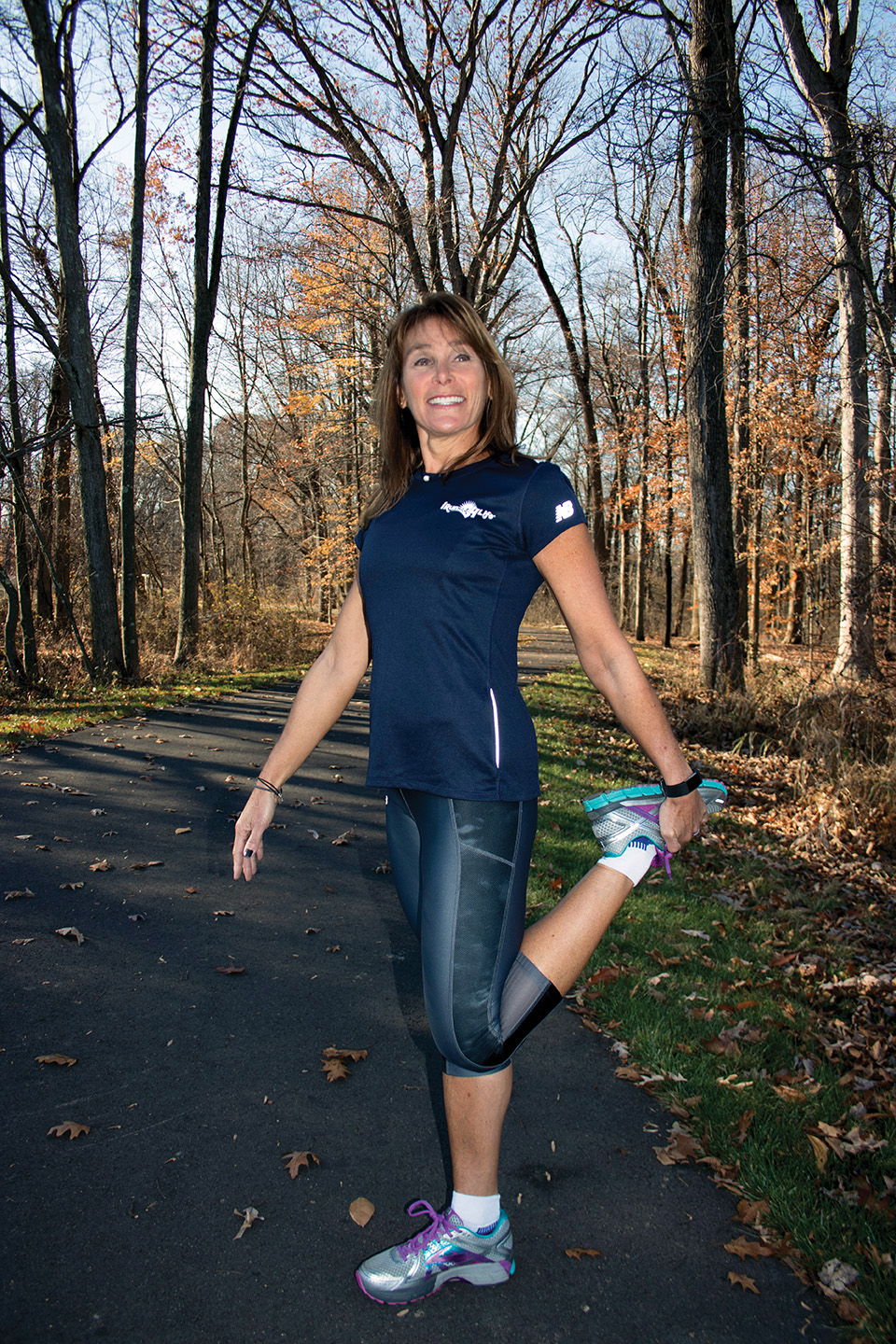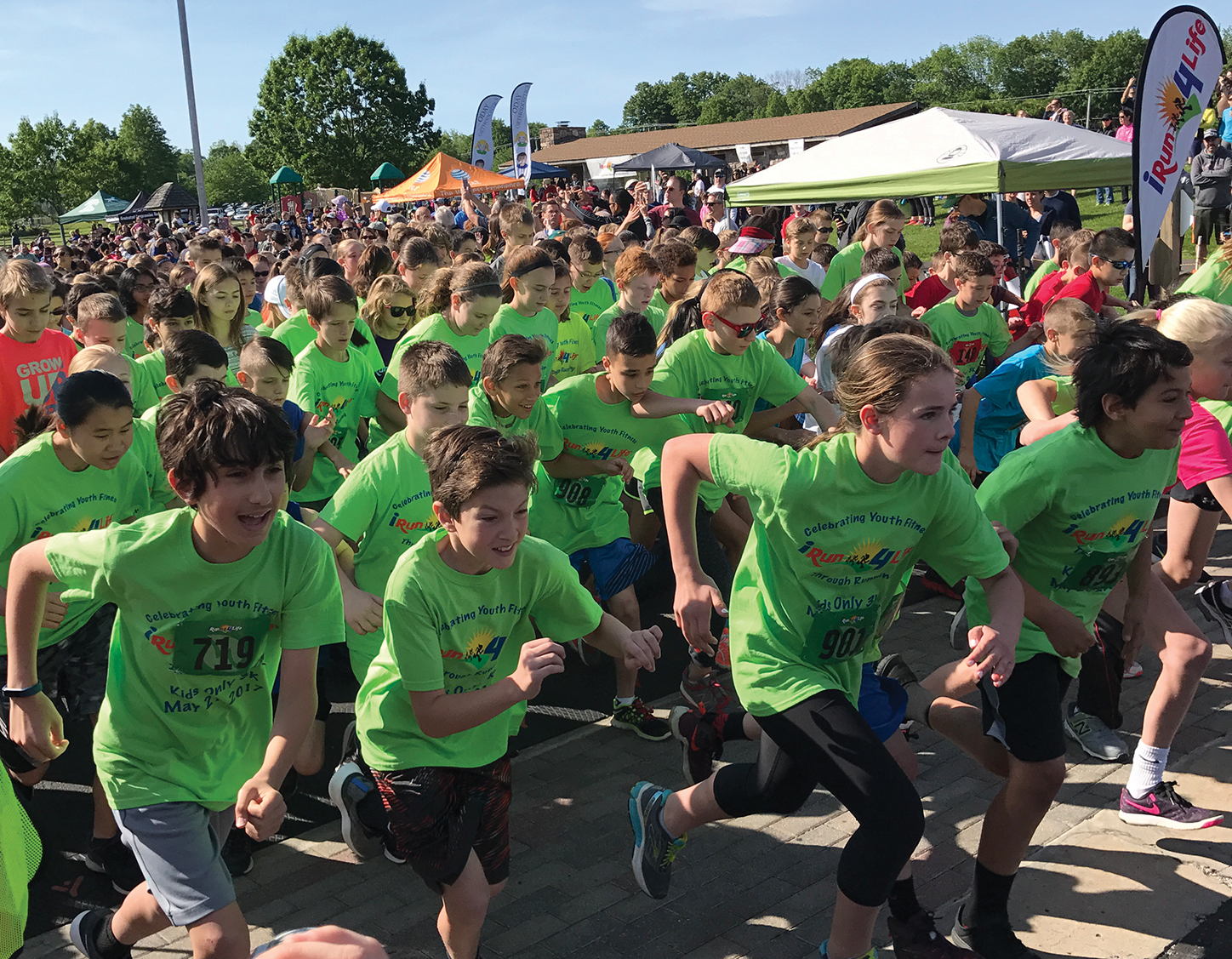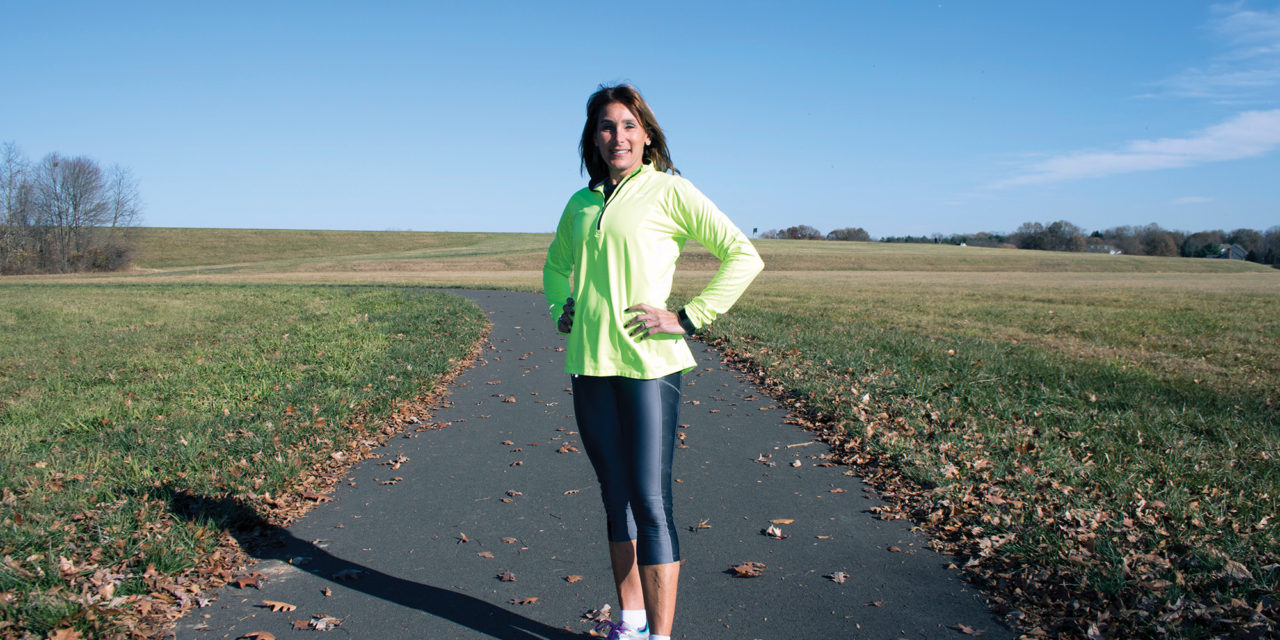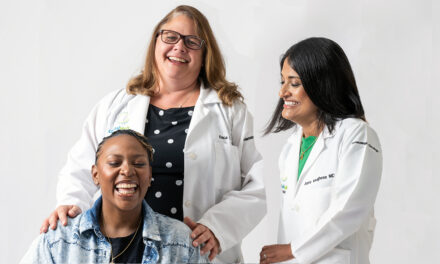Judy Wexler is fighting childhood obesity through iRun4Life, a dynamic afterschool program that makes running fun.
For Judy Wexler, running isn’t just a form of exercise but a way of life. “Running, to me is so many things,” she says. “It starts my day on such a positive note and makes me a stronger person.” The former marketing executive and mother of two has been running since 1987 and completed more than 20 half-marathons, a marathon, and innumerable 5- and 10-K races. And over the years, she has shared her love of running with her family and friends through regular group runs. “My kids wanted to run with me, and our neighbors would join us—these runs just became a community event,” she says. “I think of running as a community, and that’s a wonderful thing because everybody’s supporting each other.”
So, 10 years ago, when the vice principle at her children’s elementary school, Bridge Valley Elementary in Furlong, Pa., asked her if she would be interested in starting an afterschool running program for kids, Wexler was thrilled at the chance to share her passion. “I thought this would be a great opportunity for me to get kids healthy and get them out outside, playing with their friends,” she says. “So, I spoke to several athletic trainers and developed a new running program specifically for elementary school children.”
From the very start, Wexler’s afterschool running program focused on staying active, eating healthy, and giving back to the community. More importantly, she got 134 kids at the school to sign up that first year. “We had no idea it was going to be so popular,” she says. “I needed a lot of volunteers to help me, so I talked to all my friends, and they talked to their friends.”
And word spread. “We were teaching kids that running could be fun and didn’t have to be competitive,” Wexler says. “That it was about comradery and being outside, enjoying nature, and just giving your brain a mental break while seeing how strong you could really be.” Soon other area parents approached Wexler about bringing her running program to their children’s schools, with some even coming over her house to go over the training information. “Because our running program was simple and fun and it was turnkey,” she says. After 2 years of this, Wexler launched iRun4Life, a non-profit dedicated to helping elementary schools develop their own afterschool running programs.
Just move
Since 2008, iRun4Life has expanded to 27 schools in Pennsylvania and New Jersey, with more than 3,000 children participating in its afterschool running clubs last year. Starting in March and running through May, each running club encourages kids in 2nd through 6th grade to run at least 26 miles (and do at least 26 good deeds) by the end of the program. Along with learning about endurance, hydration, and proper running form over the course of each season, iRun4Life running clubs also teach children about proper nutrition. “My goal was to get kids of all shapes and sizes outside running with their friends, especially kids who may never have run before,” Wexler says. “I wanted them to turn off their devices, go out in the fresh air, and have fun.”
My goal was to get kids of all shapes and sizes outside running with their friends, especially kids who may have never run before. I wanted them to turn off their devices, go out in the fresh air, and have fun. —Judy Wexler

At the core of iRun4Life’s mission is a fundamental need to fight childhood obesity, which remains a serious public health crisis in the U.S. Numbers out of the Centers for Disease Control and Prevention illustrate the magnitude of the issue, with 1 in 5 children ages 2 to 15 either overweight or obese and many lacking basic physical fitness. A recent study published in the New England Journal of Medicine revealed that obese children are highly likely to remain that way as adults. The Harvard researchers behind the study went on to predict that, if current trends continue, 57 percent of today’s children will be obese by the time they’re 35. They picked that age because that’s often when the health problems associated with obesity—including high blood pressure, heart disease, and diabetes—typically begin.
While the numbers are sobering, they also highlight the importance of promoting fitness and healthy eating throughout childhood. With children’s waistlines expanding in lock step with the amount of time they spend with televisions, computers, smartphones, and tablets, the time they spend being active has decreased. ”I noticed that a lot of my kid’s friends started to develop sedentary habits after they got cell phones,” says Wexler. “They weren’t outside playing as much as they used to, and definitely not as much as my generation did when we were growing up years ago.” Since exercise is one of the least expensive ways to stay healthy, being active is an easy way to boost the overall wellness and self-esteem of children. “If they learn to love exercise at an early age, and realize how fun it is to feel healthy and strong, then they’re more likely to remain active throughout their lives,” says Wexler. That’s why iRun4Life presents running as a team sport, she adds. Downplaying the competitive aspects of the sport helps children in the program develop a healthy relationship with exercise. Together, the kids learn how to run with good form, how to breathe, and how to monitor their efforts by what their bodies are telling them.
And since eating healthy and getting regular exercise go hand in hand when it comes to maintaining a healthy weight, iRun4Life running clubs frequently have speakers talk to children in the program about nutrition. Several years ago, Wexler stood in front of the 250 kids in the Bridge Valley iRun4Life running club and asked if any of them had recently eaten a new fruit or vegetable. “I said you have to try healthy new foods and not drink any soda during your 10 weeks of training,” says Wexler. “And a week later, one of our parents told me that her daughter went to a birthday party and said she couldn’t have any cake or soda because she was in training. So, the kids are listening. Even if you don’t think they are, they’re listening.”

More than 850 children ran through Doylestown Township’s Central Park in last year’s iRun4Life Kids-Only 3-K Race.
Runners for life
For some kids, iRun4Life unlocks a love for running at an early age. “For me, that’s been a real success for these kids,” says Wexler. “They obviously love it, and they want to take it to a higher level, which is a beautiful thing,” says Wexler. She says high school coaches in the area have told her they’ve seen an enrollment uptick in their track and cross-country programs over the past 10 years. The kids’ interest in running feeds into middle school and then high school. And since adolescents who play sports are eight times as likely to be active at age 24 as adolescents who do not play sports, sparking an interest in running that can ignite a lifetime of better health.
One kid who was part of iRun4Life from the beginning is now on the Central Bucks West track and cross-country teams. “Kola is autistic—high functioning—and he just loves running,” says Wexler. “He started in second grade with us, and he went through sixth grade.” She says running really gave him a sense of purpose. The iRun4Life running club at Bridge Valley has a program in place for autistic children, lead by some of the autistic teachers at the school.
Autism is considered a spectrum disorder because of the range of symptoms and behaviors—and significant individual variation—that go along with it. The primary characteristics of the condition are deficits in social communication and social interaction, along with restricted, repetitive patterns of behavior, interests, or activities. For many kids with autism, they become less anxious the more they run. “Kola’s mom, Maureen, says that whenever he’s upset, she tells to go for a run. It calms him down and helps him focus,” Wexler says. Running, she adds, also helped increase his social circle, giving him opportunities to practice his language and communication skills. This has lead to more self-confidence and an improved sense of well-being.
According to a recent study that tracked kids from kindergarten through fourth grade, regular physical activity helps children develop and improve cognitive skills, often leading to better grades and standardized test scores. Further, such activity can affect attitudes and academic behavior, including enhanced concentration, attention, and improved classroom behavior. The researchers wrote that their findings are consistent with research showing that the hippocampus, the part of the brain thought to be responsible for forming new memories, benefits from fitness and exercise. “Running helps many of these kids focus—it helps them concentrate better,” says Wexler
Grassroots growth
Over the last decade, iRun4Life has expanded into new districts and schools largely by word of mouth. “One of our parents or teachers will switch schools and then recommended our program to the principal,” says Wexler. “We signed a school down the shore in Atlantic City because a teacher moved there from Bucks County.” From there, she says, the organization signed a school in Margate, N.J. “It’s about making a connection. That’s been the best way for us to spread the word.”
Wexler has always wanted to expand the program to low-income schools in areas where the kids need opportunities to stay active and healthy. “Some children don’t always have access to playgrounds, gym equipment, or healthy foods,” she says. “If we’re serious about combatting childhood obesity, then we need to do everything we can to help them.” Last year, iRun4Life launched a program to do just that, by having several iRun4Life affiliated schools conduct fitness-based fundraising activities. iRun4Life matched their efforts to raise $7,500 and purchase new exercise equipment for two elementary schools in North Philadelphia, Bayard Taylor and Roosevelt. “It was our organization’s good deed—to give back to the community,” Wexler says. “Now these children have all new exercise equipment that they can use
in their PE classes.”
Word of mouth has only taken iRun4Life so far and, with each school’s program organized and directed by parent and teacher volunteers, Wexler admits, “We really need some help, because none of us get paid. As a non-profit, we aren’t doing this to make money.” And finding corporate sponsors to partner with the organization has been her biggest challenge. “We have expenses, insurance, our website and database for the kids to log their miles and their good deeds,” she says. “And we have our annual race.”
Each year’s iRun4Life season culminates in a kids-only 3-K race through Central Park in Doylestown, Penn. “The 3-K is a goal race for the kids if they want to run it,” says Wexler. “We encourage them to, but it isn’t a prerequisite. The race is open to the public as well.” With the 3-K race now in its ninth year, Wexler has managed to secure enough local sponsors to keep it going. Last year’s race drew more than 850 runners. “We would love to have a sponsor for our whole program,” she says. In the meantime, Wexler and the rest of the iRun4Life team will keep sharing their love of running with thousands of kids.






